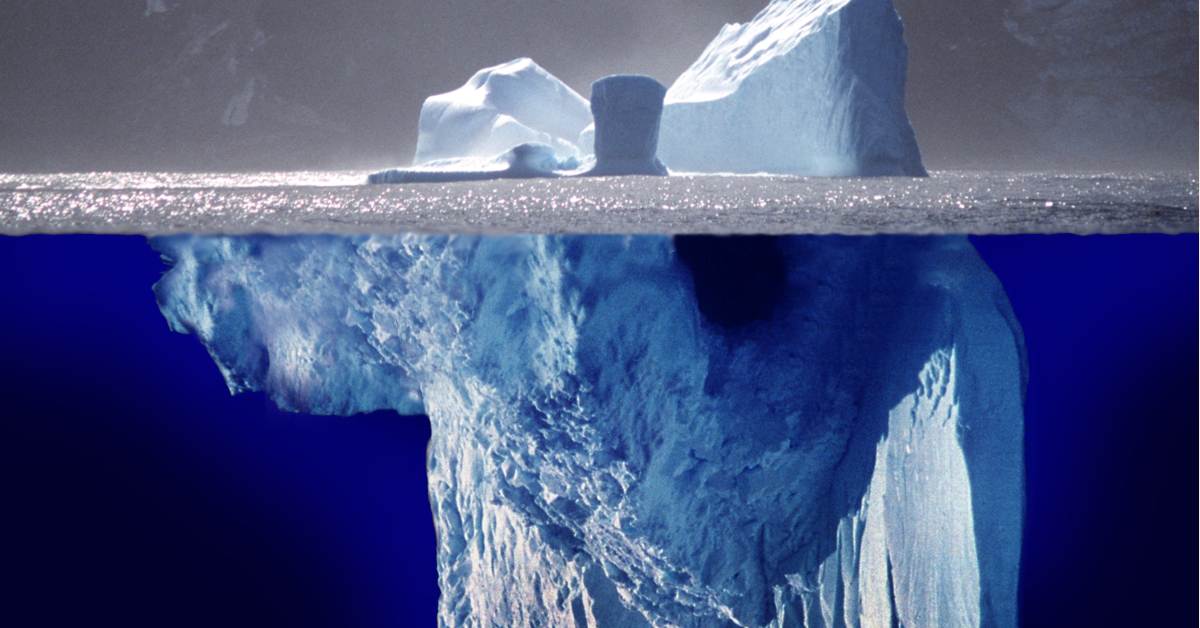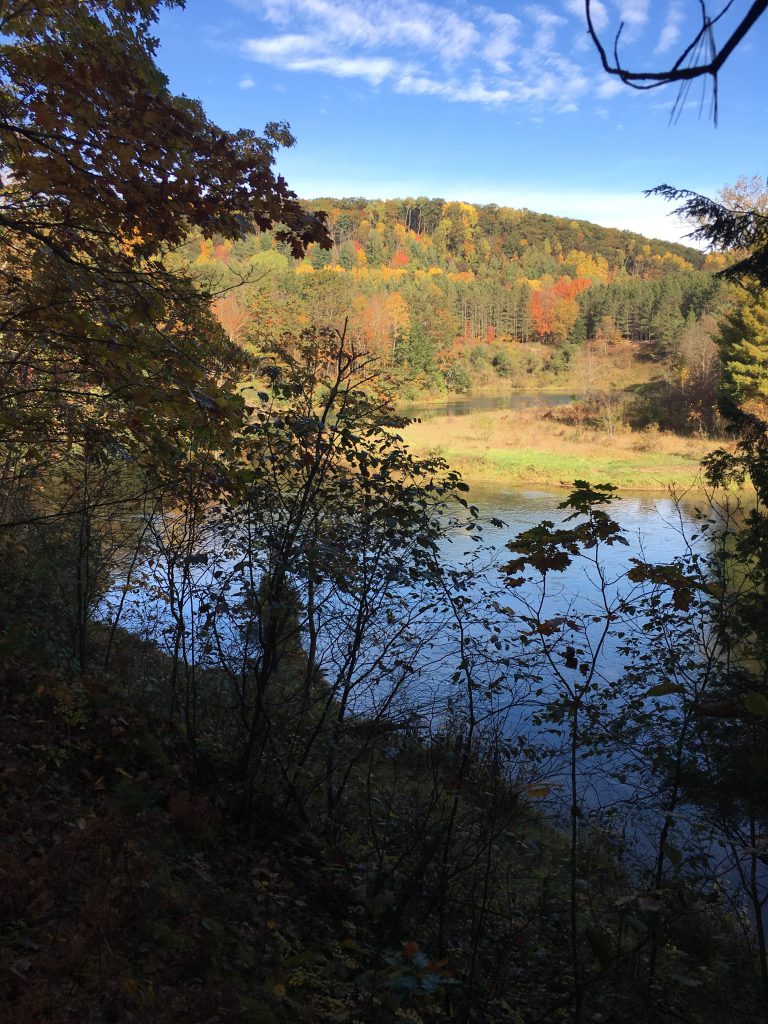“A life that doesn’t know possibility takes in only half the truth.” Pico Iyer
“I’m being rowed through paradise on a river of hell.” Haga Shahid Ali
“Once in a lifetime, hope and history rhyme.” Sophocles
A mentor of mine, Dr. Bill Anthony, told the story of his experience teaching psychology at Boston University. Bill was the Director of Psychiatric Rehabilitation there and taught graduate and undergraduate classes to students who aspired to be in the helping professions. In his opening lecture, he would hold a copy of the Diagnostic and Statistical Manual (an encyclopedia for psychologists and psychiatrists that provides criteria to help diagnose and explain psychiatric illnesses) and then dramatically toss it in the trash can. This performance not only grabbed students’ attention, it also helped him make the point that understanding someone’s experience is far more valuable than explaining a person’s behavior with a diagnostic label. The lesson has always stayed with me.
Labels are limited and limiting. Experiences can be freeing and fulfilling. Trying to explain experiences is tricky territory.
In over 50 years in the helping profession, I firmly believe that if you haven’t had the same experience as the person in front of you, you better be careful about how you explain it. To me, although scientifically based, sound explanations are very valuable, experience may be more important than explanation.
In my morning meditation, I have found that pausing between deep breaths to experience the sensation of whatever mantra I’m reciting in the moment adds a powerful dimension to my practice. I can’t explain it, but I can clearly experience it. For example, I might say to myself “experience the sensation of balanced and energized Chakras.” Now, you can imagine trying to explain that experience to someone who has never heard of a Chakra or who has no appreciation for different energy centers within our body. Truthfully, I don’t know myself if Chakras are real or not. What I do know is that I have mental energy, physical energy, emotional energy, sexual energy, and spiritual energy. At different stages of my life and at different times in each day, some energies are more active than others. I could riff on, but the explanation doesn’t matter. My experience in the moment is what matters.
I’ve been thinking about the differences between explaining and experiencing for a long time, and serendipitously (I guess), I recently came across three books written in the last year that illustrated those differences much better than I could possibly have done on my own. Here’s a brief summary of each:
Rachel Aviv’s 2022 book, Strangers to Ourselves, poses provocative questions about how we understand ourselves and how others understand us during deeply unsettling times. She employs personal stories to reveal the challenges of mental health care with penetrating attention to contextual factors like culture, class race, religion, family customs, as well as idiosyncratic experiences and private dreams that shape who we are. Aviv writes about people who experienced the limits of psychiatric explanations and psychopharmacological interventions. She covers a broad range of experiences from an Indian woman celebrated as a saint AND dismissed by her family; an incarcerated African-American mother from the projects in Chicago desperately vying for forgiveness from her children after a psychotic event; a Doctor diagnosed with bi-polar disorder seeking revenge from his psychoanalyst’s diagnoses and prescriptions; and a young woman from an affluent family and elite college who, after a decade of defining herself and being defined by others through her diagnosis, decides to go off her meds because she doesn’t know who she is without them. Aviv’s empathic exploration comes from her own experience as a child hospitalized at the age of six with a diagnosis of anorexia. These stories all reveal how mental disorders can shape our identities as well the course of our lives. While each story has elements of resilience, the book left me with the over-riding conclusion that “explanations” can’t fully account for experience and that, ultimately, how a person experiences his or her life is more important than any label or explanation one can use to define and limit it. Having said that, getting a diagnosis of Tourette Syndrome helped explain, and make more tolerable, my experience with the neurological disorder.
When McKinsey Comes to Town, written by Walt Bogdanich and Michael Forsythe in 2022, exposes the hidden influence of the world’s most powerful consulting firm. While McKinsey positions itself as the most elite and prestigious company in the world with a highly publicized set of values espousing its commitment to making the world a better place, its primary focus is to maximize profits and enhance efficiency for its clients. In this book, these two prizewinning journalists portray this behemoth as a company sharply at odds with its public image. The authors share several case studies showing how McKinsey’s work with China, Saudi Arabia, South Africa, tobacco companies, pharmaceutical companies, insurance companies, financial institutions, governmental agencies (who happen to be “regulating” their clients) and repressive authoritarians most often boils down to cost-cutting, layoffs, excessive executive compensation, maintenance reductions and short-term profit maximization at the expense of workers and safety measures. For me, the major take-away is that McKinsey does an amazing job of explaining its virtues, values, and value while providing largely negative experiences for the employees and communities affected by their advice – while they bathe in the glory of their brilliance and wealth. To me, employee experiences are much more important than elitist explanations.
To provide a little balance, my experience in working with McKinsey consultants is that they are generally very bright, talented folks who care about the work they do. It will take a whole lot of “splainin,” however, to overcome the real experiences revealed in this expose.
One of my favorite authors, Pico Iyer, also has a new book out: The Half Known Life: In search of Paradise, written in 2023. While Iyer is famous for his travel guides, Elizabeth Gilbert describes this book as “Nothing less than a guided tour of the human soul.” He takes us on an inward journey to lucidity about our spiritual searching in a tumultuous world. In this book, Iyer shares his experiences in Ireland, Iran, India, Kashmir, North Korea, London, Jerusalem, Sri Lanka, Japan, and more. In each location, he also shares his insights on how the culture and context of those places impact our internal spaces. He uncovers a dazzling range of spiritual traditions which light up our energy for more experiences around the globe and inside our soul. Iyer focuses his observations on our search for paradise – the place where our anxieties, struggles and burdens of life disappear. We all have different ideas where we can find paradise, how we should search for it, and how we will know when we experience it. In this book, Iyer shares a lifetime of explorations that “upend our ideas of utopia and ask how we might find peace in the midst of difficulty and suffering.” The real question he invites us to ask ourselves is: can paradise be found in the here and now inside our souls? Iyer has roamed the world for over 50 years experiencing the cultural delights of various locations. Now he asks us to bring together the outer world and the inner world in a joyful exploration of how we might find paradise in the course of our unique lives. Instead of trying to explain that phenomenon, Iyer simply encourages us to experience it ourselves.
I highly recommend all three books. They sparkle with dazzling brilliance.
So how can all of these “explanations” help us discover more meaningful experiences in our lives? Clearly, no explanation can substitute for experience. Even Pico Iyer’s descriptions can’t give us the experience of floating on a boat in a Kashmir lake or entering a Shrine in Iran. And yet, I don’t think going on an endless series of travel expeditions will help us find the peaceful paradise we long for.
In a recent 60 minutes episode, Anderson Cooper interviewed Rick Rubin, a music producer who has helped top recording artists reduce their work to its essence. He helps artists focus on their feelings and get in touch with what really moves them. Rubin is seen as a mystical, music guru whose work can’t be explained. He simply shares what he experiences and encourages artists to look inside themselves for what really resonates. It’s a process of “harmonizing all with all” as my friend Artie would say. You can’t explain it, but you can fully experience it.
The question for me is how do we find the lost pearl within ourselves or a sense of transcendence in a traumatic world? It seems like seeing any light in the darkness that surrounds us is a bit of a miracle in itself. As Iyer says, how brutally history mocks hope.
When I returned from a month in China studying QiGong with a spiritual master, Luke Chan, I wrote a book about the experience entitled Being at Home in the Universe. I tried futilely to explain the experience, but writing the book helped me clarify my thoughts and feelings about what I had experienced. In essence, being at home in the Universe is experiencing and being at peace with whatever feelings you are having in the moment. Home is the comfort of your internal world.
In the opening quotes, Iyer reminds us that a life that doesn’t know possibility takes in only half the truth. We can’t ignore the realities of the world around us, AND we need to search for meaning and possibilities against whatever backdrop of reality constitutes our current and historical context. Otherwise, as Ali suggests, “we are rowing through paradise on a river of hell.” Our challenge is to find our own paradise in the river and, for me, that paradise is somewhere within us. And in dealing with others, while we may not be able to fully explain another person’s experience, we can try to understand the conditions in which they lived their lives and appreciate the challenges those conditions posed. As helpers and friends, we can also accept our own limitations in being able to understand a person who has had an entirely different living and learning experience than we have had.
Hopefully, in our lifetime, hope and history can rhyme and we can find peace within ourselves and around the globe. May it be so.
Also published on Medium.



